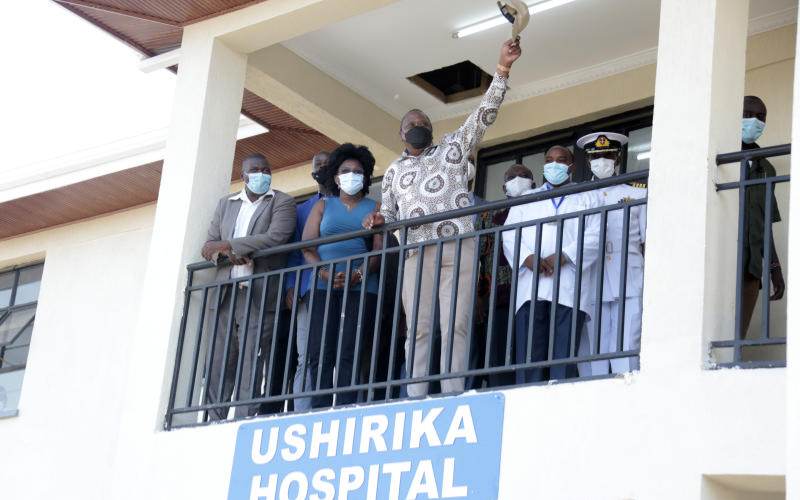
President Uhuru Kenyatta and Public Service CAS Rachel Shebesh wave to residents after opening Ushirika New Hospitals in Dandora. [Boniface Okendo, Standard]
African leaders have publicly recognised the importance of investing in research and development (R&D). In 2007, the AU Heads of State summit endorsed a target to allocate one per cent of their GDP to R&D. In 2018, ten African heads of state and government committed to increasing investments in education, science and technology. The leaders have also drawn up a continental blueprint for science, the African Union’s Science, Technology and Innovation Strategy for Africa (STISA 2024) and adopted the Sustainable Development Goals and the African Union’s Agenda 2063, both of which recognise the importance of investing in science, technology and innovation.